Humanities & Social Sciences
72nd Graduation: Doctoral Citations – CHUSS
Published
3 years agoon
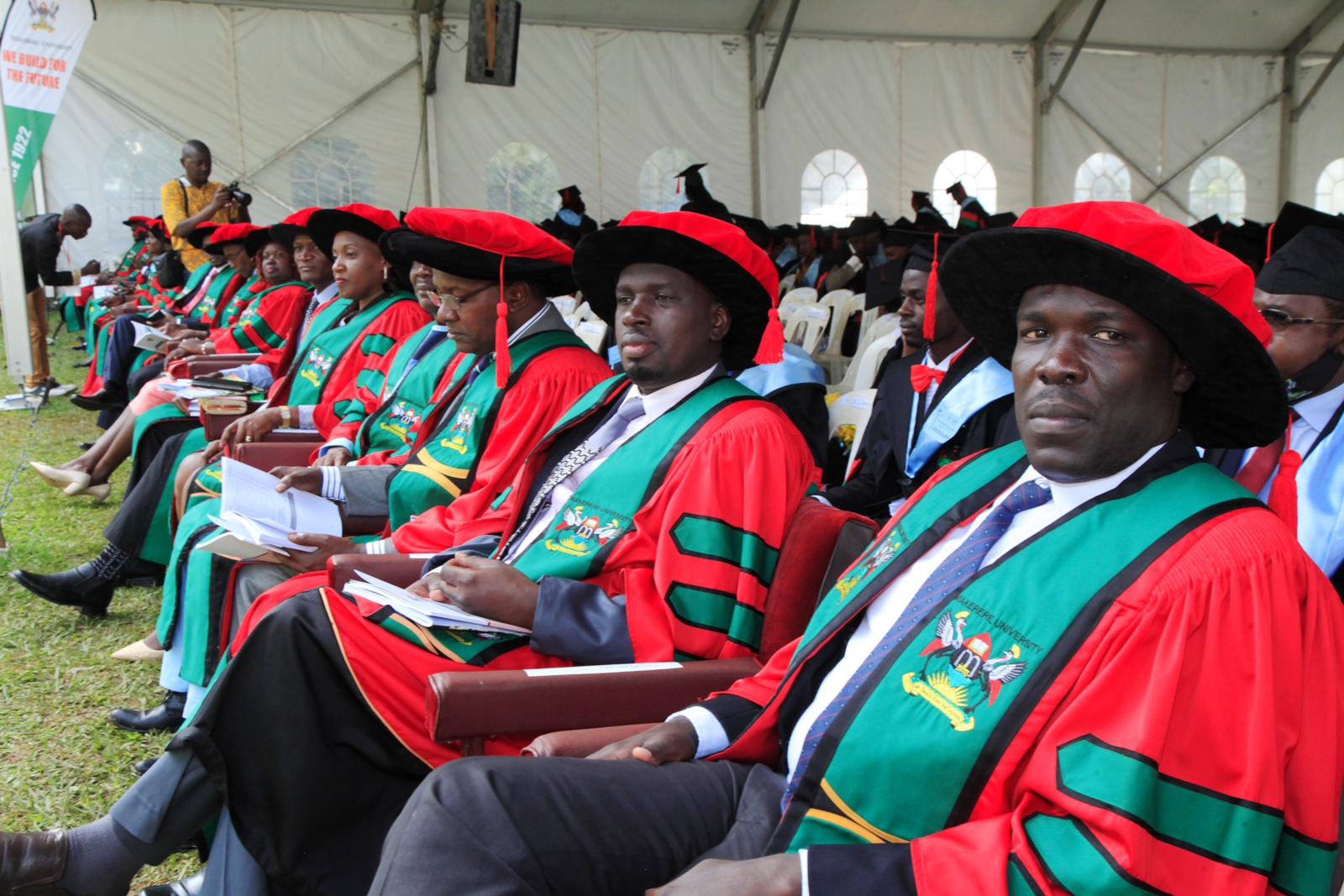

AMPAIRE Anne
Career Stereotypes and Aspiration as Predictors of Students’ Independence in Career Choice at Education Transitional Levels in Uganda
Ms. AMPAIRE Anne examined the extent to which career stereotypes and aspirations predict students’ career choice at education transitional levels in Uganda. This was motivated by the continued challenges that impact on students’ independence in career choice and the extent to which career decisions are based on the available facts. This has led to students taking up careers that are not in line with their interests, value system, and skills, thereby compromising the outcome expectations. Overall, the results revealed that reliance on personal independence and career choice facts, is decreased by the prevailing career stereotypes, across the education transitional levels. This has resulted into an increase in the number of students who pursue careers that are inconsistent with their career aspirations and interests, and there is need for measures aimed at addressing those prevailing career stereotypes. The study was co-funded by myself and Makerere University and was supervised by Dr. Mayanja Kajumba and Prof. Anthony M. Mugagga.
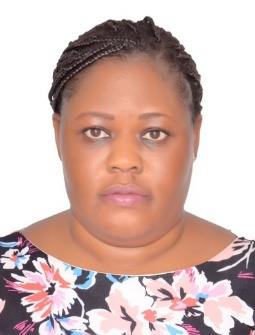
ANTWIWAA Stella
The Representation of Women in Selected Plays of Euripides and Selected Ghanaian Playwrights
Ms. ANTWIWAA Stella employed feminist and postcolonial theories to interrogate the representation of women in selected classical Euripidean plays and selected Ghanaian playwrights to examine the ‘universalist’ view that the Classics are models for others to learn from. The research questions the hegemonic elevation of the Classical/Western values to examine African experiences. The study reveals that in terms of gender representations, the Classical Greek, through Euripides’ writings, does not provide examples for the Akan (Ghanaian/African) societies. The study recommends that African scholars need to adopt Afrocentric epistemology to examine African experiences in order to shift and balance the centres of knowledge production and circulation. Africa’s classics in history, art, myths, folktales and indigenous knowledge need to be foregrounded in scholarship to address the pedestal placement of the Western Classics as a yardstick to evaluate African artefacts. Granted the Classics continue to be valuable, scholars need to interrogate them when applied to different cultural experiences. This critical and comparative study challenges the ideology of the superiority of Western Classics over other cultures. This study was funded by Gerda Henkel Stiftung Foundation, and supervised by Prof. Dominica Dipio and Dr Danson Kahyana.
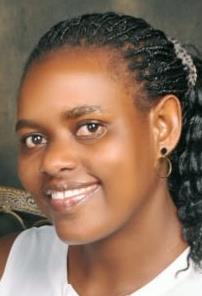
ARINAITWE Perpetua
Kiswahili at Crossroads: Cultural Politics and Language Policy in Uganda.
Ms. ARINAITWE Perpetua studied historical narratives of different language policies and factors that impacted Kiswahili growth across the different historical periods; the pre-colonial period (1840-1894); the colonial period (1894-1962); and the post-colonial period (1962-2019). A blend of three approaches to language policy and planning (LPP); the Historical-structural model, the Neo-classical Model and Language Management Theory (LMT). A narrative technique enabled the collection of both qualitative and quantitative data. Findings revealed that Kiswahili growth has been dependent on numerous language policies stretching from the pre, during and post-colonial epochs. Constant shift in cultural and political leadership meant that whoever held power determined the language policies that favoured their leadership ideology. The study was funded by the GERDA HENKEL STIFFTUNG and was supervised by Dr Saudah Namyalo and Dr Gumoshabe Gilbert.
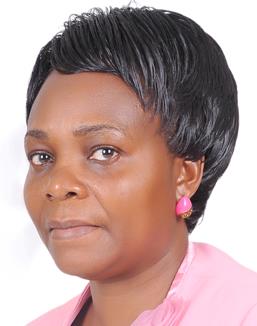
ASIIMWE Stedia
Female survivors’ Experiences of Intimate Partner Violence (IPV) and access to justice in Uganda
Ms. ASIIMWE Stedia investigated female survivors’ experiences of intimate partner violence (IPV) and access to justice in Uganda, with a focus on relationships involving male police officers. The study was carried out in Jinja police barracks in Eastern Uganda. Methodologically, qualitative approach was employed, using case study design. Findings indicate that female survivors of IPV experienced physical, sexual, economic and psychological violence. Factors that triggered IPV against women in police families included: shared accommodation, poorly managed transfers and daily deployments, alcoholism, low salaries, refusing women to work outside the barracks and work related stress. Access to justice by female survivors of IPV was constrained by alien referral pathways to justice, abusers’ possession of a weapon, long procedures, laxity by authority to punish fellow officers, sexual harassment, women’s lack of information about their rights and Government’s failure to decentralize some services. The study argues that the arm of the law is too short to reach civilian female survivors of IPV, because the abusers are at the same time the vehicles through which justice is supposed to be delivered. The study recommends that police management should construct more houses for officers, include a module on Gender based violence in police training syllabus and use mult-professional teams to handle IPV cases. The study was funded by Makerere-Sweden Bilateral Research Program, and was supervised by Dr. Victoria Flavia Namuggala and Dr. Ruth Nsibirano.

ATWAGALA Donnah
A Comparative Analysis of Land ownership and Land conflicts in post-conflict areas of Luwero and Amuru Districts, Uganda: A Gender Perspective
Ms. ATWAGALA Donnah analysed the effects of landownership and land conflicts on gender perspectives in post-conflict areas of Luwero and Amuru Districts in Uganda. The findings show that the nature and causes of land conflicts have evolved, transforming from being local to becoming international. Actors and conflicts have become more sophisticated and complex to identify and analyse, respectively. The study recommends adopting the right-based, gender and conflict-sensitive land acquisition, ownership and management framework that will ensure equitable land acquisition, access and use by all stakeholders. This study was supervised by Dr. Paddy Musana and Assoc. Prof. Consolata Kabonesa.
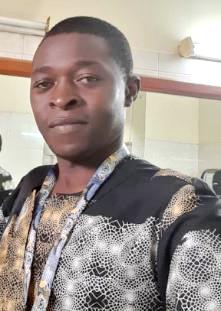
BALIKOOWA Richard
A Sociocultural Exploration of Children’s Experiences and Perspectives on Gender-based Violence in Primary Schools in Busoga Sub-region, Uganda
Mr. BALIKOOWA Richard explored the experiences and perspectives of primary school children regarding gender-based violence in and around schools and its impact on their schooling; in Uganda’s Busoga sub-region. Using a sociocultural approach, Balikoowa adopted a multimethod design through which he involved 450 male and female school children from 10 to 14 years in participatory visual activities; including draw-and-talk, child-friendly focus group conversations, in-depth interviews; as well as the eclectic administration of a survey tool. Children acknowledged experiencing and/or witnessing gender-based violence in and around their schools. They also disclosed that gender-biased factors associated with school setup and gender-based violence immensely negatively affected their motivation to engage in school activities. However, children’s greatest nervousness and related impact on their schooling was attributed to the unresponsiveness and unempathetic attitude by those around them. The study recommended that stakeholders in children’s schooling should allow them reveal their challenges and also pay concerted attention to them as key participants in their development and schooling. The study was funded by the Andrew W. Mellon and was supervised by Assoc. Prof. Julius Fred Kikooma and Dr. David Onen.
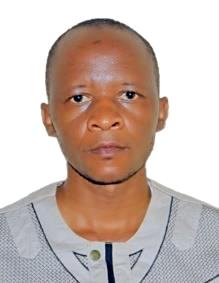
FEDEO Ignas
Myth and Mythmaking in the Narratives about Mwalimu Julius Nyerere among the Banyakyusa
Mr. FEDEO Ignas studied the recreation of Nyerere’s personal life and political career in Banyakyusa myths. The study offers an alternative understanding of Nyerere’s life and history as perceived by local people. Using oral history interviews and content analysis, Banyakyusa myths which carry their culture, voices, beliefs, and perceptions of Nyerere were recorded. The myths were interpreted based on Banyakyusa traditional beliefs and their life experiences. The findings revealed that Banyakyusa believe that Nyerere was endowed with immerse supernatural and mystical powers which helped him to implement his presidential duties successfully and protect himself and the Tanzanian people. The study established the Banyakyusa belief that Nyerere’s mystical powers greatly account for the prominence of his ideas and the reverence accorded to him in Tanzania, Africa and the world at large. The study will promote preservation of Banyakyusa and other Africans oral materials especially myths which carry beliefs and perceptions of local people. This study was funded by Gerda-Henkel Stiftung Foundation and supervised by Prof Abasi Kiyimba and Dr. Benge Okot.
KATURAMU Alex
Land, social Change and the lives of nomadic pastoralists in Western Uganda since 1950
Mr. KATURAMU Alex examined the historical proliferation of nomadic pastoralists focusing on the issues of land and social change since 1950. In the results, seasonal movements culminated into land conflicts among pastoralists and farmers. The land conflicts were exacerbated by intensity of population in the cattle corridor. The study shows that pastoralists remain one of the secors that significantly contribute to Uganda’s Gross Domestic Product, hence deserving resource investiments to improve the livelihoods of herders. This study was supervised by Dr. Simon Peter Rutabajuuka and Dr. Charlottee Karungu Mafumbo.
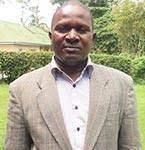
KIGEMBE Elmerek
Challenges of Strategic Plan Implementation in the North Western Diocese: Evangelical Lutheran Church in Tanzania
Rev. KIGEMBE Elmereck investigated the challenges that limited strategic plan implementation in the North Western Diocese of the Evangelical Lutheran church in Tanzania. The study identified Improper resource allocation, limited knowledge of implementers, un-conducive working conditions, lack of clear targets and changes in Government policies as negative actors in strategic plan implementation. For the church to effectively implement its strategic plan objectives so as to deliver God’s Mission, the study recommended strategic mobilization, monitoring and allocation of resources; integration of training in the strategic plan implementation processes; enhancement of working conditions; integration of clear targets in action plans and regular review of strategic plan instruments to accommodate changes in the government policy. The study was funded by the United Evangelical Mission (UEM) and supervised by Dr. Patrick Mangeni and Dr. Veneranda Mbabazi.
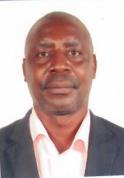
KIRIGGWAJJO Anatole
The Tonology of Lunyala Nouns, Noun Phrases and Verbs
Mr. KIRIGGWAJJO Anatole investigated the tonology of Lunyala one of Uganda’s minority languages mainly spoken in the district of Kayunga. He argues that although the tone system of Bantu languages has attracted a lot of attention in the last decade, minority languages have been neglected making such languages endangered. His study found out that Lunyala has a privative tone system with the High tone marked underlying while both the underlying and surface tones are borne by moras in a one-to-one correspondence. Further the tone distribution over the moras is determined by tonal processes for example; High and Low tone spreading, Obligatory contour Principle and Tonal polarity among others. He underscores the usefulness of the study in compiling Lunyala online-talking dictionaries and developing teaching and learning materials in Lunyala. This study was funded by Volkswagen Foundation and was supervised by Dr. Saudah Namyalo.
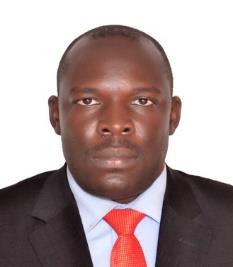
IMOKOLA John Baptist
Television Programming Regulation: Examining the Policy Implementation of Local Content Quotas in Uganda
Mr. IMOKOLA John Baptist examined the implementation of television local content quotas policy in Uganda. Five years after television local content quotas were implemented in 2014, no known comprehensive assessment had been done on uptake by television stations, and how the is understood by the different stakeholders. The study analyzed the perspectives of different stakeholders, opportunities from the local content quotas and the challenges affecting implementation. Using key informant interviews, focus group discussions and document analysis, the study found that Uganda Communications Commission, the television stations, the local content producers and the audience had reacted differently towards the policy. Implementation has seen increased production, acquisition, adaptation and airing of Ugandan content for television. Although there are opportunities created by the policy, achievement of these are bedeviled structural, conceptual, economic and political challenges affecting effective implementation. The study proposed a new definition of local content, and recommends a consultative process in the formulation and implementation of broadcast policies. This study was funded by Andrew Mellon CHUSS Fellowship and supervised by Prof. Goretti Linda Nassanga and Dr. Brian Semujju.
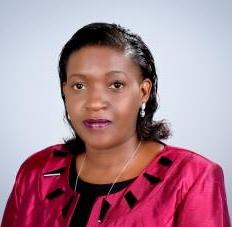
KYOMUHENDO Marjorie Niyitegeka
Family Planning Communication in Uganda: An Interrogation of Media Reporting, Communication Campaigns and Audience Perspectives
Ms. KYOMUHENDO Marjorie Niyitegeka’s study was motivated by the constant high awareness and low use of contraceptives by most women and men of reproductive age in Uganda. She thus examined the framing of family planning information in selected media stories and health communication campaigns. She also explored how audience members targeted by the campaigns interpreted family planning information. Her study found deficiencies in family planning communication occasioned by shallow media reporting and information transmission approaches that disregarded the audience’s information needs and contextual factors. She recommends that the Ministry of Health and partners implement a harmonised communication strategy that is audience-centred and responsive to the emerging information needs and socio-ecological contexts of particular audience segments. She further urges Uganda’s media to practise more enterprise and interpretive journalism in reporting family planning to amplify its significance to the public. The study was co-funded by CARTA and Makerere University, and was supervised by Prof.Goretti L. Nassanga and Prof. Anne R. Katahoire.
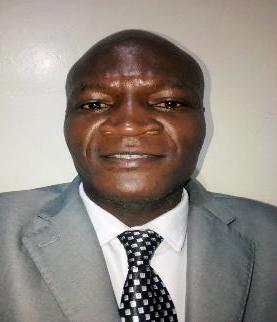
LUGWIRI Okombo Patrick
A citizen Sociolinguistics Appraisal of Kiswahili as a Tool for Social Integration in the East African Community
Mr. LUGWIRI Okombo Patrick employed the Citizen Sociolinguistics model to explore language-based decisions about Kiswahili among ordinary citizens in the East African Community, specifically, in Busia and Namanga border towns. Lugwiri’s study was motivated by Article 137(2) of the EAC Treaty (1999) which provides for the promotion of Kiswahili as a lingua franca of the Community. Using ethnographic methods, the study examined the patterns and extent of the use of Kiswahili, the nature of Kiswahili used, and citizens perceptions and attitudes to Kiswahili. The study found that Kiswahili is construed, constructed and appropriated differently by different citizens in different domains and spaces, and therefore, a highly varied language. While Kiswahili has the potential of a common language of communication and a tool for social integration in the EAC, issues of varieties and labels, contact and conflict between varieties, status and prestige, perceptions and attitudes, national and social identity, and linguistic power struggles impact negatively on this potential. The study recommended a shift in approach to Kiswahili in the EAC from the ‘top-down’ policies to ‘bottom-up’ or practice-based policies that take into account participation of ordinary citizens as makers and shapers of language policies. The study was funded by Gerda Henkel Fellowship and supervised by Dr Merit Kabugo and Dr Florence Bayiga.
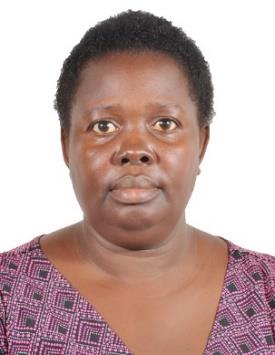
MUDONDO Constance
Land Conflicts and Livelihoods of People Utilising Namatala Wetland in Eastern Uganda
Ms. MUDONDO Constance examined how land conflicts shape livelihoods of people. Using Namatala Wetland in Eastern Uganda as a case, she examined the conflict dimensions and drivers, land use, and conflict management mechanisms. She found that increasing demand for moist farm land shape conflict dimensions leading to cleavage formation based on class, ethnicity, and location. The emergent quests for territorial control and inequality result in violence, which hinders optimal use of land and diminishes wetland users’ capitals. Although formal conflict management strategies have been tried, they were largely protectionist and divisive, reinforcing feelings of relative deprivation and latent hostilities. Consequently, the wetland users have resorted to informal coping mechanisms like social-networks that act as collective labour, financial safety valves and buffers against attacks. She argues that alleviating the effects of land conflicts requires shifting from structural models to locally bred conflict management systems. The study was funded by SIDA and supervised by Dr. Robert Kabumbuli and Dr. Dauda Waiswa Batega.
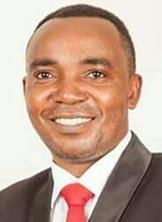
MUGENYI Jonathan
Singing Politics: Popular Music, Popular Politics and Contingencies of Protest in NRM’s Uganda
Mr. MUGENYI Jonathan examined the deployment of musical expression in the practice of state politics under Uganda’s National Resistance Movement. On the one hand, he investigated the direct and implied ways by which the NRM deploys musical expression as a tool of political mobilisation and legitimization while on the other hand, he examined ways by which the Ugandan society uses musical expression to create alternatives ways of engaging with NRM politics. Expanding the Foucauldian theory of power, Mugenyi argues that musical expression is a conduit of state power that percolates into society and it is the same conduit that returns to the state to challenge its power as contingencies of protest. This study was funded under Makerere Institute of Social Research’s Interdisciplinary MPhil/PhD and was supervised by Prof. Mahmood Mamdani.
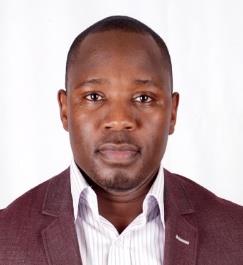
MWANIKA Kassim
Commercial Sugarcane Farming and Rural Youth Livelihoods in Eastern Uganda
Mr. MWANIKA Kassim examined the implications of commercial farming on a vulnerable population. Focusing on sugarcane farming and youth livelihoods in Eastern Uganda, he found that sugarcane farming has a suboptimal impact on youth livelihoods in Busoga sub-region. Due to limited requisite resources, the youth constitute the bulk of sugarcane labour force and their benefits from the industry are limited to wage earnings. He argues that commercial sugarcane farming is an enclave for wealthy groups, and that youth are incorporated into circuits of capital accumulation where they are exploited by employers. The process is exacerbated by lack of labour regulations and sugarcane price volatility, which undermine the trickle-down effect of sugarcane farming on youth livelihoods. Enhancing outcomes from sugarcane farming requires addressing structural traps embedded in capitalist large-scale farming. The study was funded by SIDA and supervised by Assoc. Prof. Andrew Ellias State, Prof. Atekyereza Peter and Assoc. Prof. Torun Österberg.

NAKABO Seruga Robinah
Followership and Women’s Empowerment for Sustainable Development: A Case of the Women in the National Association of Women’s Organisations in Uganda
Ms. NAKABO Seruga Robinah investigated followership and women’s empowerment for sustainable development, taking the case of the women in NAWOU. After in-depth interviews, findings showed that followership was generally a taken for granted concept. Respondents perceived followership as a cooperative venture, retrospection on past experiences, as a detour, seeking to stabilise or destabilise the status quo, identifying preferred values, and mentorship. Most voices reiterated that generally, many women exhibited perpetual and unconscious followership tendencies even when other alternatives were available; with fear as the main causal condition. However, women’s followership of NAWOU was found to be pragmatic and conscious with the implication of possible empowerment; intervened by education, family ties, and financial situations. The conclusion was, depending on personal characteristics, perception of empowerment and the typology of followership adopted, women could gain empowerment for sustainable development. The recommendation is that NAWOU, the government, academic institutions, and similar organizations reconsider the concept of followership and its implications on empowerment. The study was supervised by Assoc Prof. Godfrey Assimwe, and Dr. Robert S. Esiruku
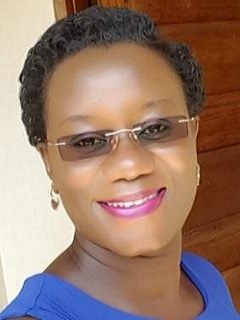
NAKALYOWA Deborah
Intimate Partner Violence and Masculinities: Experiences of Baganda male “survivors” in Masaka District, Uganda
Ms. NAKALYOWA Deborah examined, through a qualitative methodology, the lived experiences of men who were subjected to Intimate Partner Violence (IPV) by their female intimate partners in heterosexual relationships, including forms/types in which the IPV manifested, and how it affected the masculine identities of the male victims. Findings revealed that they were subjected to psychological/emotional violence, in addition to physical aggression and sexual abuse in the contexts of Intimate Terrorism, Situational Couple Violence and Mutual Violent Control. While the importance of maintaining an appropriate sense of masculinity underpinned their narratives, the male victims described feeling shame and embarrassment for not having met the dominant cultural expectations surrounding masculinity, consequently affecting their emotional and physical well-being. However, the majority of men were hesitant to seek help after victimization, for fear of ridicule, emasculation and being cast as the perpetrators. Therefore, there is need for more research and advocacy to enhance recognition and public awareness about the plight of male victims, review of laws/policies aimed at combating IPV in intimate relationships to be more gender-inclusive, as well as establish victim service support sources for all IPV victims, regardless of gender. The study was funded by SIDA and supervised by Dr. Evelyn Lutwama-Rukundo and Assoc. Prof. Consolata Kabonesa
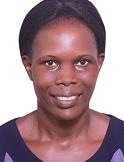
NANSAMBA Joyce
Why They Stay: A socio-cultural Reconstruction of Academics’ Retention in Uganda’s Public Universities.
Ms. NANSAMBA Joyce explains why Academics stay working in Uganda’s Public Universities despite unappealing working conditions. Recognizing that staff retention is not exclusively about institutional frameworks and individually situated explanations, the study underscores the role of historical, social and cultural contexts in explaining retention. A narrative analysis of the academics’ stories revealed that the meaning academics attach to their professional identity, the social relations from engaged scholarship and the otherness from external prestige explain their retention. The study was a departure from conventional thinking that attractive pay and benefits, satisfactory terms of service, good working conditions among others explain retention. It was a novel step to studying retention as a social construction from the perspective of Academics’ own experiences. The study was funded by Makerere University and supervised by Assoc Prof. Julius Kikooma and Assoc Prof. Umar Kakumba.
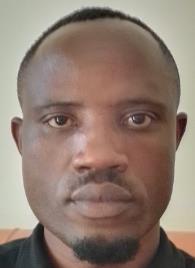
NIRINGIYIMANA Julius
Oil Politics and Land Conflicts in the Albertine Region, Uganda
Mr. NIRINGIYIMANA Julius investigated how oil politics was influencing the changing nature of land conflicts in the Albertine region of Uganda. The study discovered that though the Ugandan government had been engaging in protracted negotiations with multinational oil corporations in an effort to protect the national interests, the process instead got plagued by land conflicts and dispossession of citizens from their land. It established that the interests of the actors conflicted and led to the politicization of oil governance. Consequently, the government was made to adjust its position to accommodate the interests of multinational oil corporations while other opportunistic interests, such as land speculators also took advantage. These actions made the affected persons to lose their land rights which invoked and intensified land conflicts in form of Polanyi’s ‘countermovement’ and adversely affected people’s livelihoods. The study concluded that where neoliberal capitalism interfaces with an oil-producing developing country, citizens face dispossession of land and other rights, and where there are pre-existing land conflicts, the politicisation of oil intensifies them and produces new ones. The study recommends that the Ugandan state should re-assert its interests and obligations to protect people’s land rights and make multinational oil corporations to adhere to internationally established benchmarks such as fair compensation. This study was funded by SIDA and supervised by Prof Muhumuza William and Prof Murindwa Rutanga.
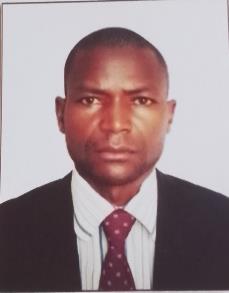
TUNANUKYE Nicholas
A History of Migrancy, Nativism, and Citizenship in Uganda, 1894-1995: A case of South and Western Uganda
Mr. TUNANUKYE Nicholas examined the relationship between migrations, identity formations and citizenship in Uganda, 1894-1995 using migration experiences of Bakiga and Banyankole into Buganda, and Bakiga into Bunyoro. Using historical research methods which included analysis of documents, oral narratives and archival sources, the study established that, whereas migration had taken place in the region of pre-Uganda, colonial rule encouraged unprecedented internal migration in Uganda. The new socio-economic order brought about by the colonial state opened the way for free movement in the protectorate across ethnic boundaries. There were two main reasons for this accelerated migration: migrant labour and search for land. The migration of Banyankole and Bakiga from southwestern region of Uganda to Buganda in the 1930s, 1940s into 1960s was largely in response to the former, while the migration of the Bakiga into Bunyoro and Toro regions during the 1950s and 1960s was in response to latter. The study also established that there were complex interactions between the migrating and receiving communities. One major complexity lay in the attitude of nativism, expressed in subtle ways. Nativism gave rise to two kinds of citizenship consciousness: the Local Citizenship bestowed by membership to an ancestral community inhabiting a particular region and National Citizenship bestowed by the statutes of the Ugandan state. The study was funded by The Andrew W. Mellon Foundation and was supervised by Dr. Simon Peter Rutabajuuka and Dr. Deo Nzarwa Katono.
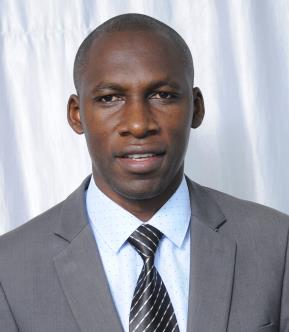
WAMAMELA Nixon
A critique of Constitutional making and amendment in Uganda with Reference to the 1967 &1995 Constitution
Mr. WAMAMELA Nixon conducted an ethical critique of constitutional making and amendment in Uganda with specific reference to the 1967 and 1995 constitutions. The study established that the constitutional processes were seemingly legitimate, yet, self-interest tendencies overrode common interest, hence, the resultant controversies such as lack of consensus among members of parliament, questionable declaration of state of emergency, controversial consultations, resultant scuffles and violent scenes in parliament. It was also established that ideals of constitutional democracy and legislative ethics were lacking. To mitigate the above challenges, an ethical framework for constitutional making and amendment processes should be put into account. Such a framework should include referenda, benchmarking and a national consensus on ethical principles, declaration of conflict of interest by the incumbents and other possible beneficiaries. These are possible through creation of ethics review committee within parliament. The study was funded by Andrew W. Mellon Foundation and supervised by Prof. Archangel Rukooko Byaruhanga and Dr. Paul Matthias Shimiyu.
Browse Citations by College below:
< Director’s Message | CAES | CoBAMS | CoCIS | CEES | CEDAT | CHS | CHUSS | CoNAS | CoVAB | LAW | MUBS >
You may like
-
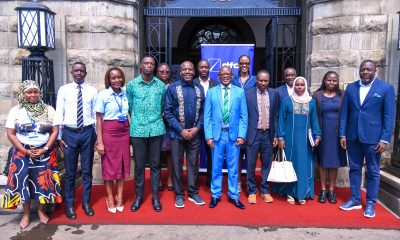

Makerere University, DFCU Bank Sign MoU to Advance Innovation, Student Leadership and Research
-
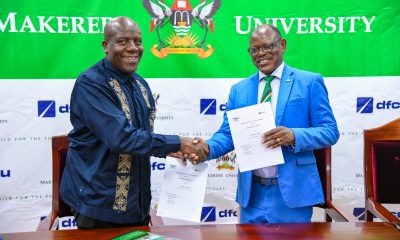

Press Release: Mak & DFCU Partner to Enhance Higher Education, Research & Student Support
-
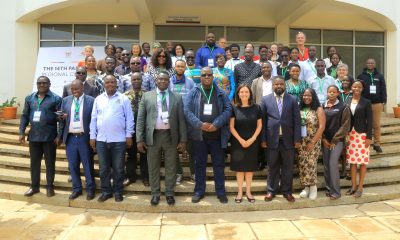

Harmonizing Africa’s Future through Musical Arts Education
-
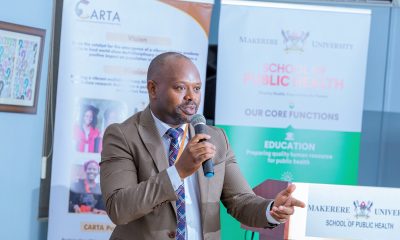

CARTA Focal Person Dr. Isunju Appointed to MakPress Editorial Board
-
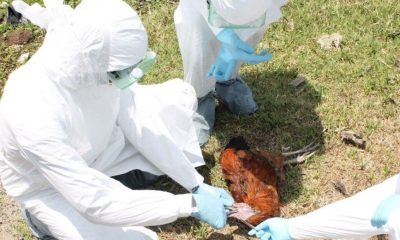

Advancing Regional Health Priorities Through the CARTA Research Hubs
-
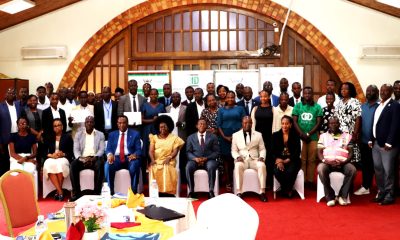

Swedish Ambassador Calls on Uganda to Lead Africa’s E-Mobility Revolution
General
Diploma in Performing Arts Admission List 2025/26
Published
1 day agoon
July 4, 2025By
Mak Editor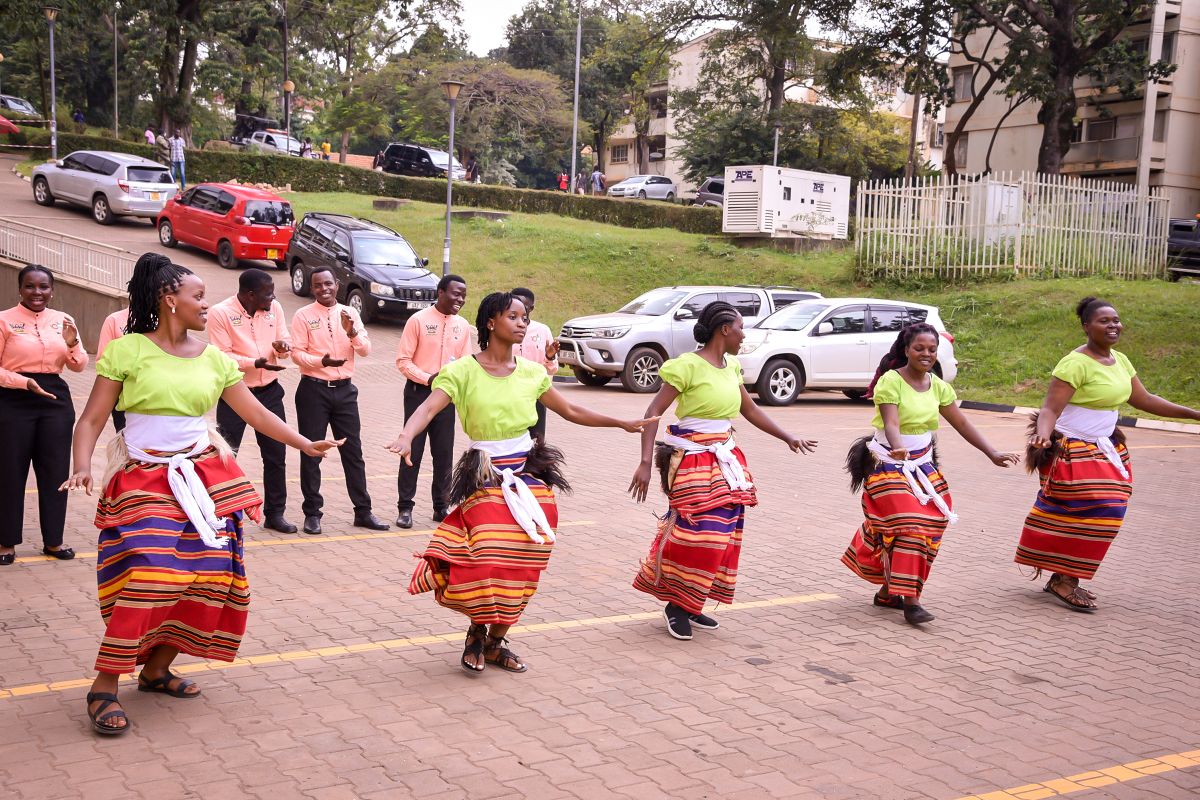
The Office of Academic Registrar, Makerere University has released the admission list of candidates who passed the special entry examinations for the Diploma in Performing Arts held on Saturday 17th May, 2025
The following have been admitted by the University’s Admissions Committee on Private Sponsorship for the 2025/26 Academic Year
General
Special Exam Results -Diploma in Performing Arts 2025/26
Published
1 week agoon
June 28, 2025By
Mak Editor
The results for the 2025/2026 special entry examination for the Diploma in Performing Arts held on Saturday 17th May, 2025. Candidates who scored a final mark of 50% and above passed the Examination and have been recommended to the university’s Admissions Committee for consideration.
Health
MakSPH, DJC Launch Short Course on Health Communication
Published
2 weeks agoon
June 20, 2025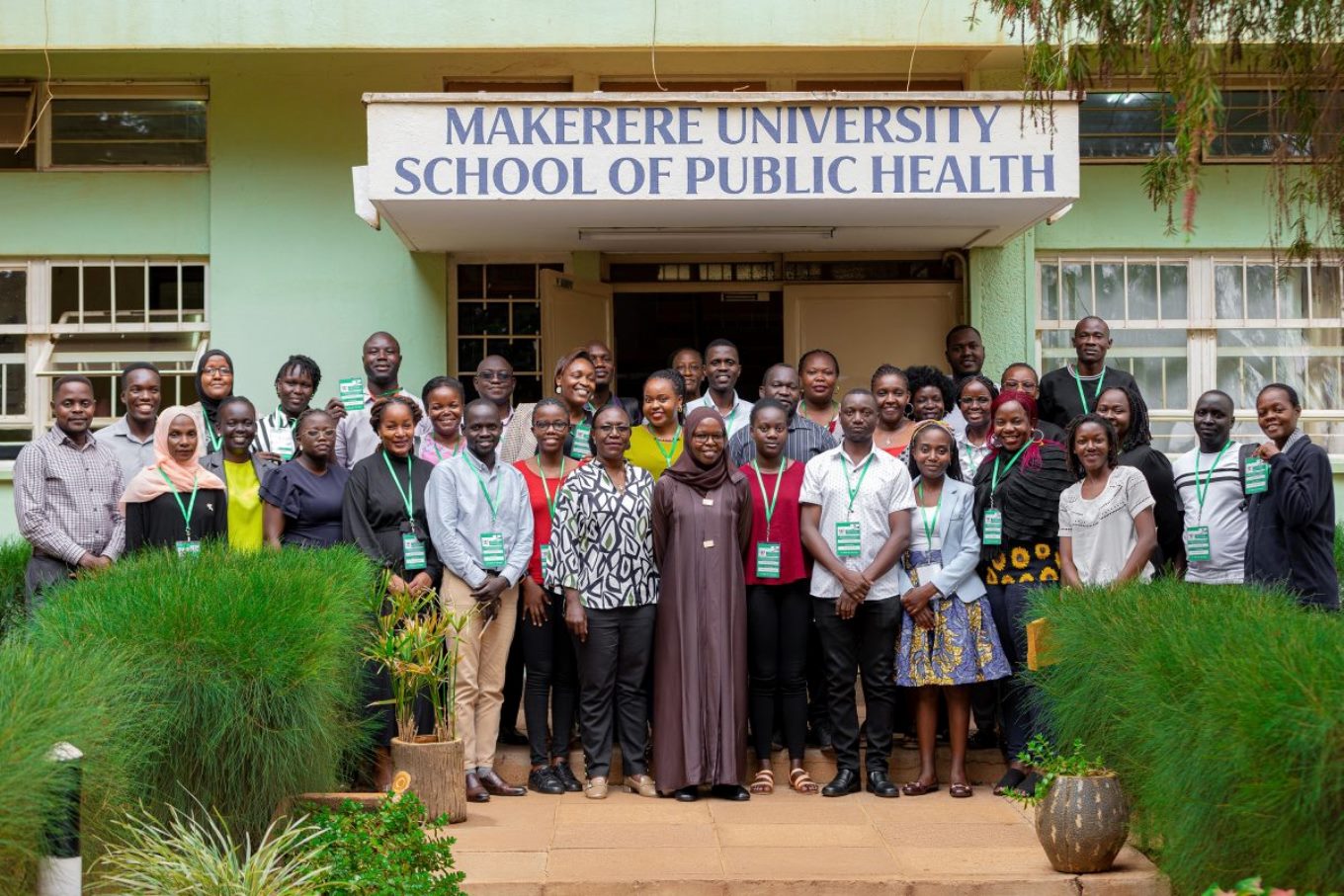
By Okeya John and Primrose Nabankema
The intensive one-month course, running for the first time from June 5 to July 24, 2025, is jointly offered by Makerere University School of Public Health (MakSPH)’s Department of Community Health and Behavioural Sciences (CHBS) and the Department of Journalism and Communication (DJC) at the School of Languages, Literature, and Communication (SLLC), co-designed in 2024 with support from the Rockefeller Foundation through Amref Health Africa.
It seeks to equip healthcare providers at the community level, public health and environmental health practitioners, communication specialists, health educators, community development officers, social scientists, and policy makers, among others, with strategic communication skills to improve public health messaging, strengthen community engagement, and support evidence-based interventions, ultimately empowering participants to effectively engage communities and improve population health outcomes across Uganda and the region.
Launching the course, the heads of the Department of Journalism and Communication and the Department of Community Health and Behavioural Sciences noted that participants who complete the short course will gain practical tools to influence behaviour change, build trust, and deliver timely, accurate, and relevant health information to the communities they serve. The first cohort attracted more than 60 applicants, with 36 reporting for the opening in-person session on June 5, 2025, at MakSPH in Mulago. Between now and July, participants will undergo a hands-on, multidisciplinary learning experience within the Certificate in Health Communication and Community Engagement program, which combines theory and practice.
Among the participants in the first cohort of the certificate course, designed as a pilot for the anticipated Master of Health Promotion and Communication to be jointly offered by the two departments at Makerere University, is Ms. Maureen Kisaakye, a medical laboratory technologist specialising in microbiology and antimicrobial resistance (AMR), and currently pursuing a Master’s in Immunology and Clinical Microbiology at Makerere. She is driven by a passion to help reverse the rising tide of AMR, a growing global health threat where drugs that once worked are no longer effective. Kisaakye is particularly concerned about common infections, like urinary tract infections, becoming increasingly resistant and harder to treat.
“I enrolled in this course because I’m an advocate against antimicrobial resistance, and it came at a time when I needed to deepen my knowledge on how to implement our projects more effectively and engage with communities. The experience has broadened my understanding of AMR and its impact on society, and strengthened my passion for community-driven health initiatives and advocacy,” Kisaakye said, explaining why she enrolled for the short course.
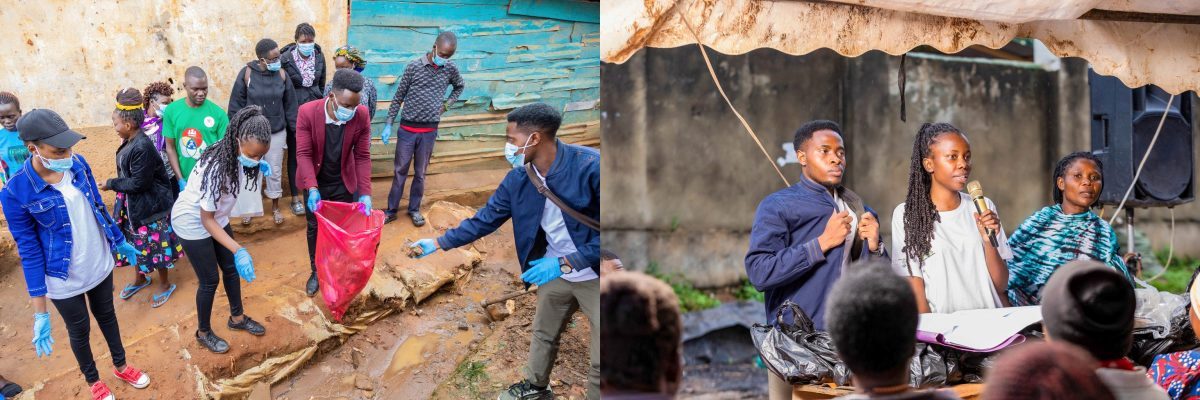
Kisaakye’s work in antimicrobial resistance extends beyond the lab. Having earned her degree in medical laboratory science from Mbarara University of Science and Technology, she founded Impala Tech Research in 2024 to drive impact and save lives. She has led grassroots AMR campaigns that integrate antimicrobial stewardship with water, sanitation, and hygiene (WASH) education in underserved urban communities, including the informal settlements in Kampala. She also has since designed peer-led initiatives that empower university students as AMR Champions, building a network of informed youth advocates. Kisaakye believes the health communication course will sharpen her ability to design and deliver impactful, community-centred interventions in response to the growing threat of drug resistance.
“The department collaborates with many partners within and beyond the University, including the School of Public Health, where we are working to develop the subfield of health communication and promotion. Our goal is to train specialists in this area and build a community of practice, something we have each been doing in our own spaces. There’s a lot of work ahead, and COVID-19 showed us just how urgently we need a generation trained to do this kind of work, and to do it very well,” said Dr. Aisha Nakiwala, Head of the Department of Journalism and Communication, during the opening of the short course on June 5.
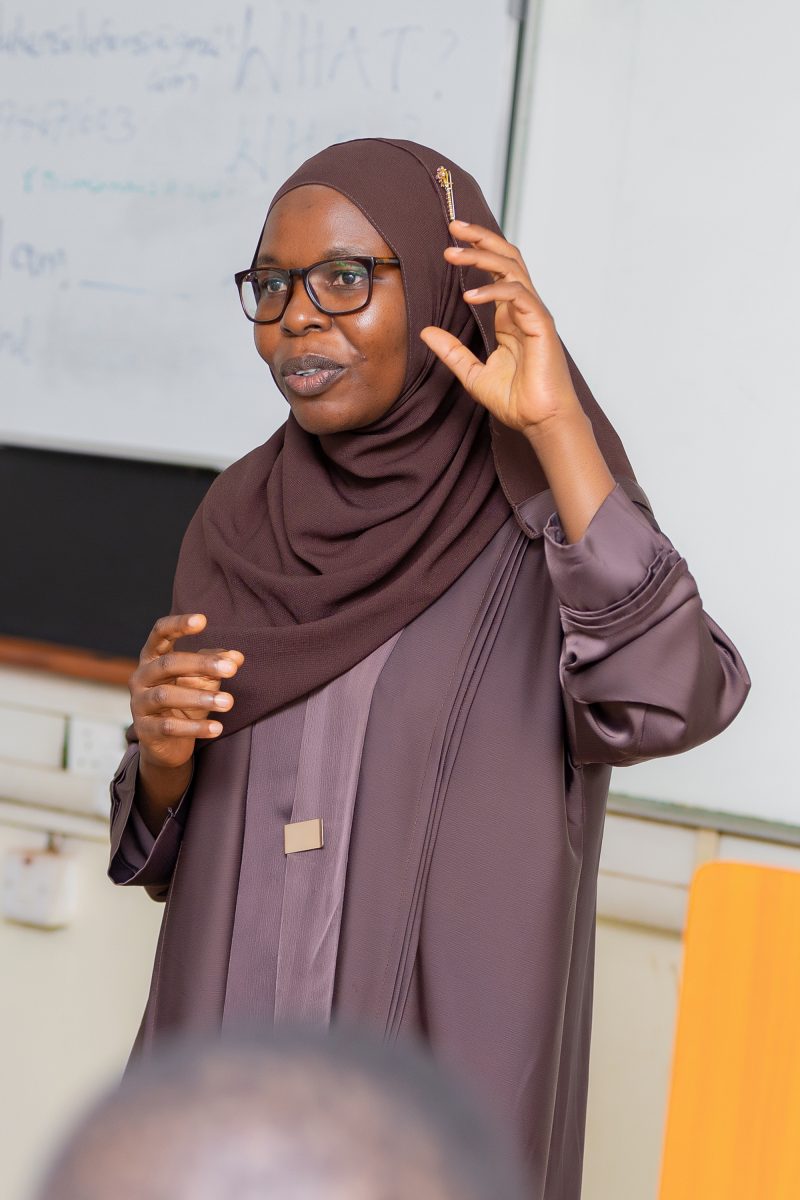
She assured participants they were in good hands and underscored the importance of the partnership between the Department of Journalism and Communication and the School of Public Health, describing it as a vital collaboration that brings together strategic communication and public health expertise. This dynamic, multidisciplinary approach, she noted, is essential to developing practical solutions that empower communities, strengthen health systems, and ultimately improve livelihoods.
The course offers a hands-on, multidisciplinary learning experience, with participants intended to explore key modules including Health Communication and Promotion, Risk Communication, Smart Advocacy, Community Mapping, Community Mobilisation and Empowerment, and Strategies for Community Engagement. The course combines theory with real-world application, and its assessment includes a field-based project and a final exam.
“You are our first cohort. We are seeing the fruits of our efforts in bringing this short course to life. It was born out of a joint initiative to develop a Master’s programme in Health Promotion and Communication,” said Dr. Christine Nalwadda, Head of the Department of Community Health and Behavioural Sciences. “We carried out extensive consultations with our different key stakeholders during the process and discovered a real need for such a course. It was the stakeholders who even named it; this course name didn’t come from us.”
For Kisaakye, by the end of the course in July, she hopes to have sharpened her skills in health promotion and strategic communication, particularly in crafting targeted messages that help individuals and communities effectively respond to threats such as antimicrobial resistance. She also aims to gain practical experience in designing, implementing, and evaluating community health initiatives that can strengthen her advocacy and drive lasting impact.
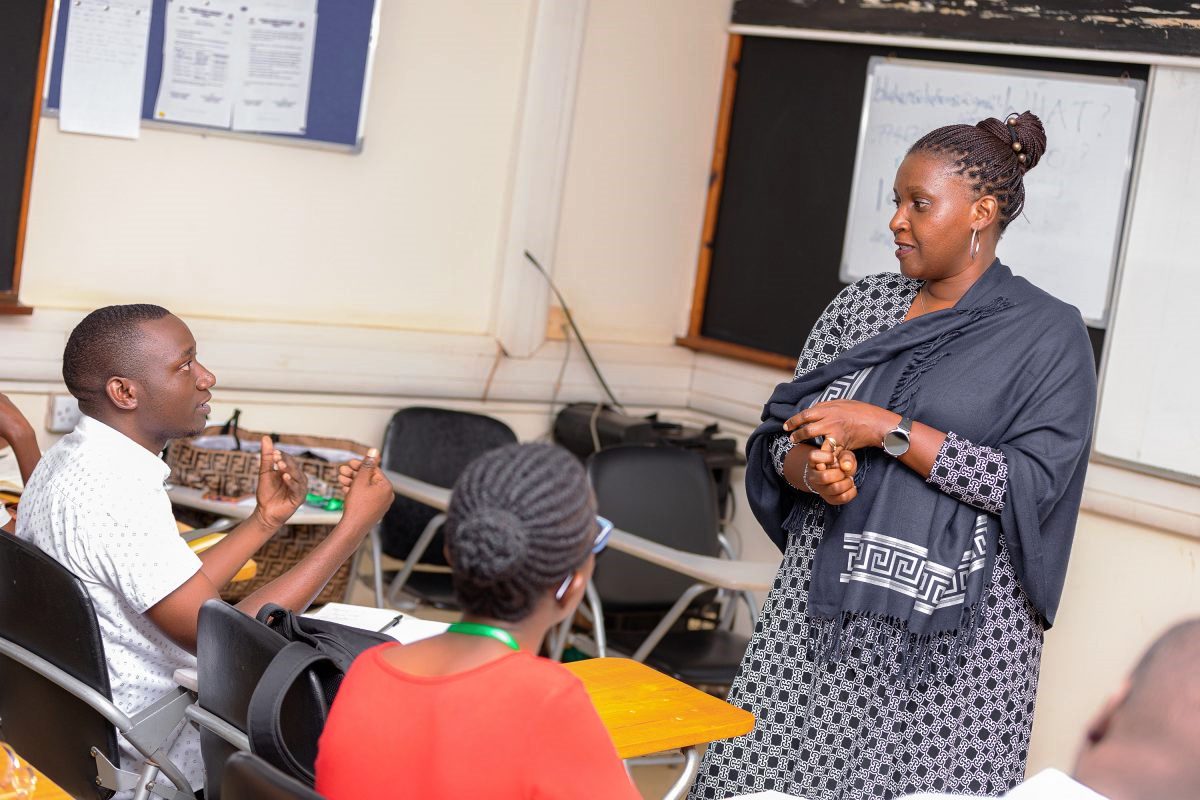
Trending
-

 Education1 day ago
Education1 day agoAdmission List to Bachelor of Education External (BED) 2025/26 -Private Sponsorship
-

 General1 week ago
General1 week agoMature Age Scheme Exam Results for 2025/2026
-

 General2 weeks ago
General2 weeks agoFreshers’ Joining Instructions 2025/2026
-

 General4 days ago
General4 days agoUndergraduate Admission List Self Sponsorship Scheme 2025/2026
-

 General2 weeks ago
General2 weeks agoMastercard Foundation Board pays its inaugural visit to Makerere University
